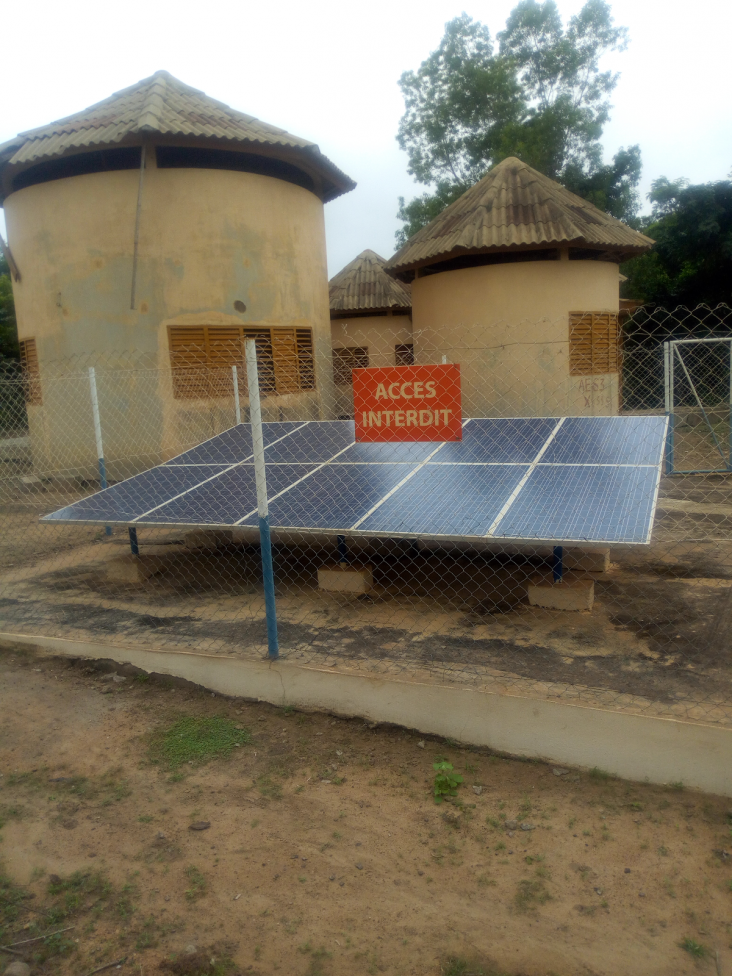Speeches Shim

The lack of access to reliable electricity at an affordable cost remains a key constraint to achieving broad-based economic development for the West African region. Years of underinvestment in the region’s power sector has denied millions of the region’s inhabitants of the benefit of experiencing an improvement in the quality of their living standard. Increasing access to affordable and reliable energy holds the key to alleviating the plight of millions of West Africans who currently suffer from limited access to quality health care, education, and economic opportunities. USAID/West Africa’s support to ECOWAS and its specialized institutions aims to improve West Africa’s access to cheap, reliable and sustainable energy through increased investment in the sector.
Expanding supply of and access to affordable and reliable grid-connected electricity services
Through the West Africa Energy Program (WAEP) Power Africa through USAID is seeking to bring together technical and legal experts, the private sector, and governments from around the world to work in partnership to increase the number of people with access to power in the sub region with the goal of advancing development priorities including inclusive economic growth, security, and improved health and education outcomes. Specifically the program will seek to achieve the twin objective of increasing the supply of power and expanding access to reliable and affordable grid connected power by achieving the following outcomes over the next four years:
- 8,000 MWs of new generation capacity reach financial close
- 3,800 kilometers (km) of new transmission lines commissioned
- 3.5 million on-grid connections (including new and regularized)
- Functioning regional power market launch accelerated
Leverage private investment in clean energy generation
There are viable clean energy and off/mini grid projects in West Africa that have the potential to expand access to energy. Clean energy investment opportunities have attracted interest from private developers, however, financing is critical because of the high up-front costs of clean energy, particularly for installing equipment. Lending is needed to trigger greater private development of the energy sector. However to lend, financial institutions need commercially viable projects.
To address these constraints, Power Africa through the Power Africa Off Grid Project (PAOP) is providing technical assistance to developers, utilities and regulators to advance private sector energy transactions, as well as expanding options for financing clean energy projects. Also, USAID/West Africa through its technical assistance support to ECREEE is assisting Gambia, Ghana, and Burkina Faso with the preparation of their respective SE4All Investment Prospectuses. The program also supports the development and implementation of the West Africa Clean Energy Corridor (WACEC). The WACEC is an initiative of ECOWAS to harness the region’s vast renewable energy potential to cover unmet power demand and achieve universal access to electricity while supporting the region’s transition to a low-carbon growth path by 2030. The objective is to deploy up to 10 gigawatts of solar energy into the region’s generation mix by 2030.
Enable cross-border trade of energy in West Africa
The goal of WAPP is to complete interconnectivity among all West African countries and begin multi-country energy trading by 2020. To launch regional energy trading will require completing the connection of West African utilities to a regional grid and building the capacity of regulators and member utilities to manage a regional power pool. USAID supports WAPP to address these challenges with its member utilities. USAID’s assistance focuses on facilitating transmission infrastructure development as prioritized in WAPP’s Master Plan, developing and implementing market rules, and ultimately building the capacities of the WAPP Secretariat and member utilities to operate a regional power pool. Over the next four years, the West Africa Energy Program, through its transaction advisory support and deal facilitation services to WAPP, ERERA and national governments and utilities as well as private developers hopes to ensure that 6 high priority regional transmission projects, identified in the WAPP Master Plan, reach operation and at least 3.5 Terawatt hours (“TWh”) of additional cross border power is traded annually.
Power Africa
Power Africa is a U.S. Government-led partnership coordinated by the U.S. Agency for International Development (USAID). Launched in June 2013, Power Africa brings together the technical capacities, capabilities, resources, and programs of 12 U.S. Government Departments and Agencies and 16 international development partners to provide market-driven solutions to advance the goals of the Electrify Africa Act of 2015, to catalyze small businesses, the power industry, and bring electricity to millions of people for the first time.
Power Africa is one of the largest public-private partnerships in development history with more than $54 billion of commitments from its more than 150 public- and private-sector partners. It is laying the foundation for sustainable economic growth in Africa, while also providing expanded economic opportunities for American taxpayers, workers, and businesses.
To date, Power Africa and its partners have helped 84 power projects comprising of more than 7,300 megawatts (MW) to reach financial close with a total investment of more than $14 billion. Nearly three-quarters of the 84 projects use renewables, 60% of the MW achieved are from natural gas, and over 2,000 MW are already operational.
Power Africa has helped add 10.6 million connections to off-grid, micro-grid, and central grid solutions, which has enabled tens of millions of people to gain access to electricity for the very first time.

Comment
Make a general inquiry or suggest an improvement.